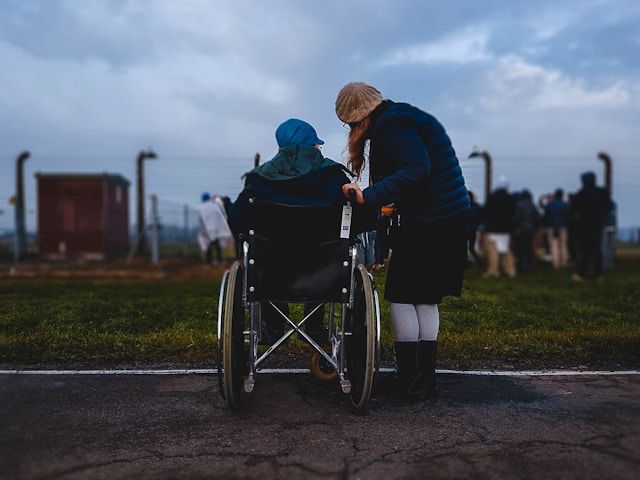Creating Connections: How Disability Support Fosters Community and Inclusion

Support is crucial for fostering community and inclusion. But how exactly does it contribute to a more connected society? This article explores the multifaceted ways these services build stronger, more inclusive communities. By understanding their impact, we can appreciate the importance of supporting individuals with disabilities in our society.
The Role of Support Services
Disability support services play a major role in creating inclusive communities. They assist individuals with disabilities, enabling them to lead fulfilling lives. These services range from daily living support to employment assistance.
Daily Living Support
Daily living support ensures that individuals with disabilities can perform everyday tasks. This type of support includes:
- Personal care: Help with bathing, dressing, and grooming.
- Household tasks: Help with cleaning, cooking, and shopping.
- Health management: Helps with medication and healthcare appointments.
These services enable people to live independently and with dignity.
Employment Assistance
Employment assistance is another critical aspect of support. It helps individuals with disabilities find and maintain meaningful work. This will includes:
- Job search assistance: Assistance with resume writing and job applications.
- Workplace accommodations: Ensuring that the workplace is accessible and supportive.
- Ongoing support: Continued assistance to address any challenges that arise at work.
By facilitating employment, these services promote economic independence and social inclusion.
Building Social Connections
These services also play a significant role in building social connections, which are essential for creating a sense of belonging and community.
Community Activities
Participating in community activities is crucial for social inclusion. These services often organise and facilitate these activities. They include:
- Social groups: Regular meet-ups for individuals with similar interests.
- Recreational activities: Sports, arts, and other hobbies.
- Community events: Local festivals and gatherings.
These activities provide opportunities for individuals with disabilities to meet new people and build friendships.
Inclusive Education
Education is a key area where these services make a significant impact. Inclusive education ensures that students with disabilities have the same opportunities as their peers. This includes:
- Specialised learning support: Tailored educational programs to meet individual needs.
- Assistive technology: Tools and devices that aid learning.
- Teacher training: Educators receive training to assist students with disabilities effectively.
By promoting inclusive education, these services help build a more understanding and supportive society.
Enhancing Accessibility
Accessibility is a cornerstone of inclusion. These services work tirelessly to enhance accessibility in various aspects of life.
Physical Accessibility
Ensuring physical accessibility is fundamental. This includes:
- Accessible buildings: Ramps, elevators, and wide doorways.
- Transportation: Adapted vehicles and accessible public transport.
- Public spaces: Accessible parks, restrooms, and recreational areas.
These modifications enable individuals with disabilities to navigate their environments with ease.
Digital Accessibility
In today’s digital age, digital accessibility is equally important. These services advocate for:
- Accessible websites: Ensuring online content is accessible to all users.
- Assistive technology: Screen readers, voice recognition software, and other tools.
- Digital literacy programs: Training individuals with disabilities to use technology effectively.
Digital accessibility allows individuals with disabilities to participate fully in the digital world.
Promoting Advocacy and Awareness
Advocacy and awareness are crucial for fostering a more inclusive society. These services often lead initiatives to promote understanding and acceptance.
Advocacy Programs
Advocacy programs empower individuals with disabilities to speak up for their rights. These programs include:
- Self-advocacy training: Teaching individuals how to advocate for themselves.
- Public speaking opportunities: Platforms for sharing experiences and raising awareness.
- Policy advocacy: Working with policymakers to create inclusive legislation.
These efforts ensure that the voices of individuals with disabilities are heard and respected.
Awareness Campaigns
Awareness campaigns play a major role in changing societal attitudes. These services organise campaigns to:
- Educate the public: Providing information about disabilities and the importance of inclusion.
- Challenge stereotypes: Dispelling myths and promoting positive representations of individuals with disabilities.
- Encourage community involvement: Inspiring people to support and engage with disability initiatives.
These campaigns help create a more accepting and inclusive society by raising awareness.
Supporting Families and Caregivers
It extends beyond individuals with disabilities, providing crucial assistance to their families and caregivers. This is essential for maintaining a stable and supportive environment.
Respite Care
Respite care offers short-term relief to primary caregivers. It ensures they have the time to rest and recharge, which is vital for their well-being. Respite care services include:
- In-home care: Professional caregivers provide support at home.
- Short-term stays: Temporary accommodations in care facilities.
- Community programs: Day programs that offer social and recreational activities.
By alleviating some of the caregiving burden, respite care helps prevent caregiver burnout.
Disability Support services are essential for fostering community and inclusion. They provide critical assistance, build social connections, enhance accessibility, and promote advocacy and awareness. Through these efforts, they contribute to a more connected and inclusive society. Understanding and supporting these services is crucial for building a world where everyone can thrive. These services not only benefit individuals with disabilities but also enrich the entire community, creating a more inclusive and compassionate society.
